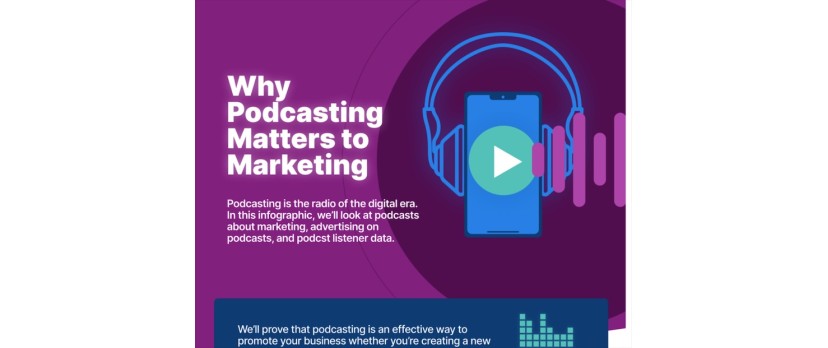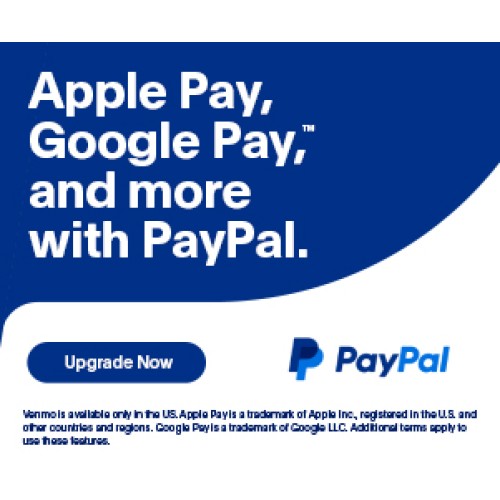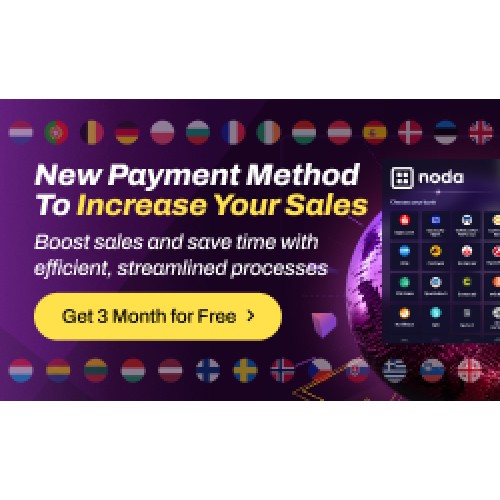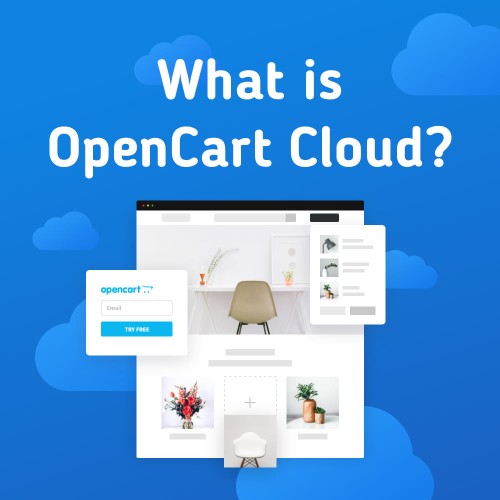Podcasts are a popular and effective way to reach your target audience, build trust, and establish your brand authority. They can also help you generate leads, increase traffic, and boost sales. But how do you include podcasts in your marketing mix? It’s easy.
Read this guide to find some of the most effective strategies about how to include podcasts in your marketing mix and grow your business. Whether you are a beginner or an expert, you will find valuable insights to help you create and market your podcast.
So, without further ado, let’s go!
Distribute Your Podcast to Directories
This is one of the most effective ways to increase your podcast exposure and reach new listeners. Saba Mobebpour, CEO at SPOCKET, said, “By submitting your podcast to various directories, you can make it easier for people to find and subscribe to your show on their preferred platform.”
Some of the most popular directories are Apple Podcasts, Spotify, Google Podcasts, Stitcher, and TuneIn. To submit your podcast to these directories, you need to have a valid RSS feed, a podcast name, a description, a cover art, and a category. You can use a podcast hosting service like Captivate to create and manage your RSS feed and distribute your podcast to multiple directories with a few clicks, explains Ken Jar, Financial Expert at Money Advisor.
Collaborate with Influencers
Influencers are people who have a large and loyal following on social media, blogs, podcasts, or other platforms. They can help you reach a wider and more targeted audience for your podcast, as well as boost your credibility and authority in your niche, said Martynas Žvirblis, Manager at VPSForexTrader.
You can collaborate with influencers in various ways, such as inviting them as guests on your podcast, asking them to share your podcast with their followers, or sponsoring their content with your podcast name and link. Sumeer Kaur, Founder of Lashkaraa.com, shares, “To find and reach out to influencers, you need to do some research and identify the ones who are relevant to your podcast topic, audience, and goals.”
You can use tools like BuzzSumo, Podchaser, or Podcorn to find and contact influencers in your niche. Lisian Ajroni, CTO of AJRONI Web Design Agency, said, “You should craft a personalized and compelling pitch that explains why you want to collaborate with them, what value you can offer them, and what you expect from them in return.”
Use Social Media Platforms
Social media platforms are powerful tools to spread the word about your podcast, attract new listeners, and build a loyal fan base. Robert Smith, Head of Marketing at Psychometric Success, said, “You can use social media platforms to share your podcast episodes, teasers, trailers, behind-the-scenes, polls, quizzes, and other interactive content that will spark interest and curiosity among your followers.”
You can also use social media platforms to communicate with your audience, solicit feedback, answer questions, and encourage discussions. And you can join relevant groups, communities, and hashtags related to your podcast niche and participate in conversations, share valuable insights, and invite people to check out your podcast.
In an interview, Anton Lau, CEO of VisitHaiti, shares, “Some of the most popular social media platforms for podcast marketing are Facebook, Twitter, Instagram, LinkedIn, and TikTok.”
Start Podcast Monitoring
Podcast monitoring is the process of tracking and analyzing your podcast performance, audience feedback, and industry trends. This can help you measure your podcast success, identify your strengths and weaknesses, and discover new opportunities for improvement and growth, adds Tia Campbell, Director of Marketing at Practice Reasoning Tests.
You can use tools like Brand24, Podtrac, or Charitable to monitor various metrics and data related to your podcast, such as downloads, listens, subscribers, ratings, reviews, mentions, rankings, and more. You can also use these tools to compare your podcast with your competitors, find out what your audience likes and dislikes, and get insights into the latest trends and topics in your niche.
Derek Thompson, Landscape Artist at LandscaperShield, explains, “You should monitor your podcast regularly and use the data to optimize your podcast marketing strategy, improve your content quality, and deliver more value to your listeners.”
Collaborate with Other Podcasters
Collaborating with other podcasters is a great way to grow your audience, build relationships, and learn from others in your niche. Danny Jay, Marketing Director at SOLVED Consulting, adds, “You can network with other podcasters and cross-promote each other’s podcasts on your platforms, such as social media, blogs, newsletters, and more.”
You can also do guest appearances, co-host episodes, or create joint episodes with other podcasters, where you can share your expertise, opinions, and stories with each other’s audiences.
Andy Gillin, Attorney at GJEL Accident Attorneys, shares, “To collaborate with other podcasters, you need to find and reach out to the ones who have a similar or complementary niche, audience, and style as yours. You can use platforms like Podmatch, PodcastGuests, or MatchMaker to find and connect with potential podcast partners.”
Make a Website for Podcasts
A podcast website or page is a central hub for your podcast, where you can showcase your episodes, provide show notes, links, transcripts, and other resources for your listeners. It also helps you to build your email list, grow your social media following, and drive traffic to your products or services, adds Gerrid Smith, CMO of Joy Organics.
A podcast website or page should have a clear and catchy title, a compelling description, an attractive logo, and a call to action to subscribe or download your podcast. You can also include testimonials, ratings, reviews, and social proof to increase your credibility and authority.
Eran Mizrahi, CEO of Ingredient Brothers, said, “A podcast website or page can be created using platforms like WordPress, Squarespace, or Podpage, or you can use a podcast hosting service like Spotify, Anchor, or Buzzsprout that offers website creation features.”
Use Email Marketing
Email marketing is one of the most effective ways to grow and engage your podcast audience. John De Ray, Director at PR Power, shares, “Email marketing allows you to communicate with your listeners on a personal level, build trust and loyalty, and drive traffic to your podcast website or page.”
To leverage email marketing, you need to have a sign-up form or link on your website, social media, and podcast platforms, where you can invite your listeners to join your email list. You should offer them a compelling reason to sign up, such as a freebie, a bonus, or a discount. You should also have a welcome email that introduces yourself, your podcast, and your value proposition, adds Ethan Keller, President at Dominion.
Turn Podcast Episodes into YouTube Videos
YouTube is the largest and most popular video-sharing platform in the world, with over 2 billion monthly active users. Kellon from Electric Wheelchairs USA, shares, “YouTube is a powerful search engine, second only to Google, where people look for information, entertainment, and education.”
YouTube is a great channel to promote your podcast and grow your audience, as well as to monetize your content. John De Ray, Director at PR Water, explains, “You can turn your podcast episodes into YouTube videos, either by using a static image or a video recording of your podcast. You can also add subtitles, annotations, and links to your videos.”
Create a Community
One of the best ways to grow your podcast audience and increase your retention rate is to create a sense of community and belonging among your listeners. You can create a community around your podcast by offering exclusive content, perks, and benefits to your loyal fans, such as bonus episodes, Q&A sessions, live events, merchandise, shout-outs, and more, shares David Martinez, VP Enterprise & OEM Accounts at Cybernet Manufacturing.
In addition, you can create a community platform where your listeners can connect with you and each other, share their thoughts, opinions, and experiences, and support your podcast. Use platforms like Discord, Slack, Facebook Groups, Reddit, or Patreon to create and manage your podcast community.
Michael Hess, Tech Expert at Code Signing Store, shares, “Creating a community around your podcast will help you to build trust, loyalty, and advocacy among your listeners, and turn them into your brand ambassadors”
Be a Guest on Other Podcasts & Invite Other Podcasters to be Guests on Your Podcast
Podcast cross-promotion is a proven and effective way to reach new audiences, expand your network, and increase your credibility and authority, shares Josh Matthew, Marketing Expert of Laptop Reviewers.
By being a guest on other podcasts, you can showcase your expertise, personality, and value proposition to potential listeners who are already interested in your niche and topic. Plus, by inviting other podcasters to be guests on your podcast, you can leverage their existing fan base, reputation, and influence to attract more listeners to your podcast. You can also benefit from their knowledge, insights, and perspectives, and provide more value to your audience, explains Jonathan Rosenfeld, Founder & Attorney at Rosenfeld Injury Lawyers LLC.
To be a guest on other podcasts or invite other podcasters to be guests on your podcast, you need to do some research, outreach, and preparation.
Martin Seeley, CEO of Mattress Next Day, adds, “You need to find podcasts that are relevant, reputable, and complementary to your podcast, and pitch them with a compelling and personalized proposal. You also need to prepare your talking points, questions, and stories, and deliver a high-quality and engaging podcast interview.”
Repurpose Your Podcast Content
One of the best ways to promote your podcast and increase your exposure is to repurpose your podcast content into different formats and share them on various channels, adds Kevin King, Founder & CEO at Anytime Baseball Supply.
For example, you can turn your podcast episodes into YouTube videos, Instagram reels, TikTok clips, Facebook stories, or LinkedIn live streams. You can also create eye-catching images, infographics, quotes, or memes from your podcast content and post them on Pinterest, Twitter, or Reddit.
Plus, you can write blog posts, newsletters, or ebooks based on your podcast topics and offer them as lead magnets or free downloads on your website or email list. Ritika Asrani, Owner and Broker of Century21 St Maarten Real Estate, explains, “Repurposing your podcast content helps you to reach new audiences, boost your SEO, and reinforce your brand message.”
Optimize Your Podcast for SEO
SEO is not only important for your website, but also for your podcast. Podcast SEO is the process of improving your podcast’s visibility and ranking on search engines like Google or Bing. Anna Haris, Marketing Manager at Online MFT Programs, shares, “Podcast SEO can help you reach more potential listeners, grow your audience, and increase your authority and influence in your niche.”
To optimize your podcast for SEO, you need to consider several factors, such as your podcast title, description, episode titles, show notes, keywords, categories, tags, audio quality, and distribution platforms. Olivia Rutman, Founder & CEO at Kids Care Finder, said, “You need to create high-quality and engaging podcast content that provides value to your listeners and matches their search intent. Plus, you need to repurpose your podcast content into different formats and channels, such as videos, images, blog posts, social media posts, and newsletters.”
Furthermore, you need to encourage your listeners to rate, review, and share your podcast with others. By following these podcast SEO best practices, you can boost your podcast’s performance and reach new audiences.
Use Paid Advertising
Paid advertising is a way to boost your podcast’s visibility and reach by paying for ads on platforms like Google, Facebook, Instagram, YouTube, and more.Maria Mercieca Imbroll, Team Leader of Corporate Services at CSB Group, says, “Paid advertising can help you to target your ideal audience, drive traffic to your podcast website or page, and increase your downloads and subscribers.”
You can use different types of ads, such as display ads, video ads, audio ads, or sponsored posts, depending on your goals and budget. You can also use tools like Outbrain, Taboola, or Spotify Ad Studio to create and manage your podcast ads, shares Khashayar Shahnazari, Chief Executive Officer at FinlyWealth.
Create a Podcast Trailer
A podcast trailer is a short and catchy audio clip that introduces your podcast to potential listeners. It should highlight the main theme, topic, and value proposition of your podcast, as well as your personality and style.
Emily Rapoza, Marketing Manager at Library Science Degrees Online, explains, “A podcast trailer can help you to capture attention, spark curiosity, and generate interest in your podcast. You can use your podcast trailer to promote your podcast on your website, social media, email, and other channels.”
You can also submit your podcast trailer to Apple Podcasts, Spotify, and other platforms to feature it on their new and noteworthy sections.
Create a Podcast Newsletter
A podcast newsletter is a way to communicate with your existing and potential listeners via email. A podcast newsletter can help you to build and nurture your relationship with your audience, provide additional value and information, and encourage them to listen to your podcast episodes.
You can use your podcast newsletter to share your latest episodes, show notes, transcripts, resources, behind-the-scenes, and more. You can also use your podcast newsletter to solicit feedback, questions, and suggestions from your listeners, and to offer exclusive content, perks, and discounts. Casey Meraz, Founder & CEO of Juris Digital, said, “You can use tools like Mailchimp, ConvertKit, or Substack to create and send your podcast newsletter.”
Conclusion
Podcasts are a valuable tool for your marketing mix, as they allow you to reach and engage your audience, as well as to promote your brand, products, or services. However, to ensure the success of your podcast, you need to have a clear podcast marketing strategy.
This strategy includes creating quality content that provides value, uniqueness, and a personal connection to your listeners. Distribute your podcast across multiple platforms, optimize it for SEO, and repurpose your podcast content to grow your audience, build trust and loyalty, and achieve your marketing goals.
Remember that podcasts are not just a trend — they are a powerful way to communicate with your potential and existing customers.




Login and write down your comment.
Login my OpenCart Account